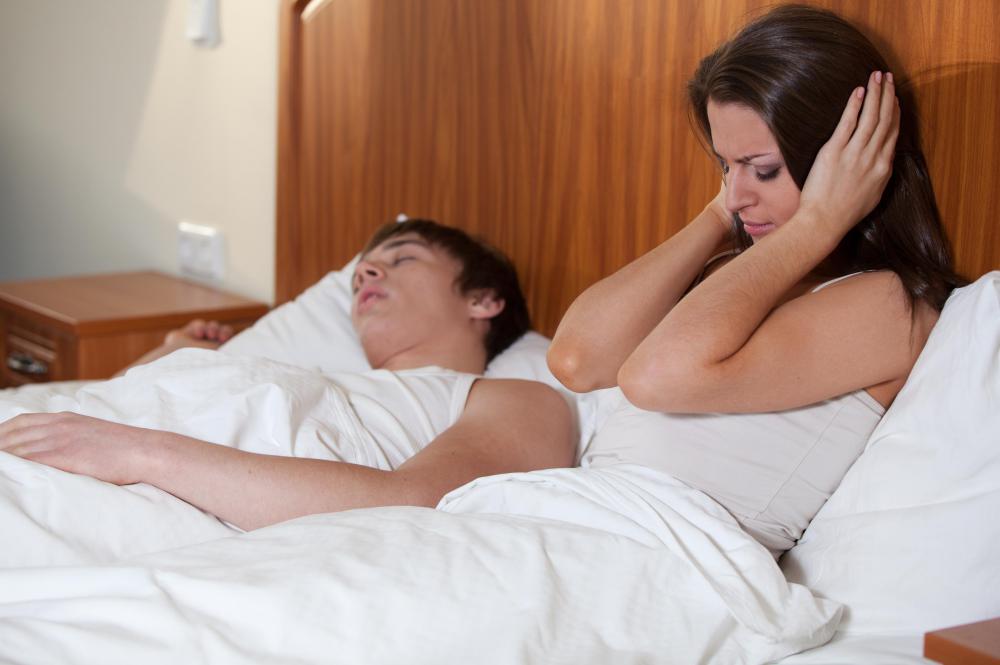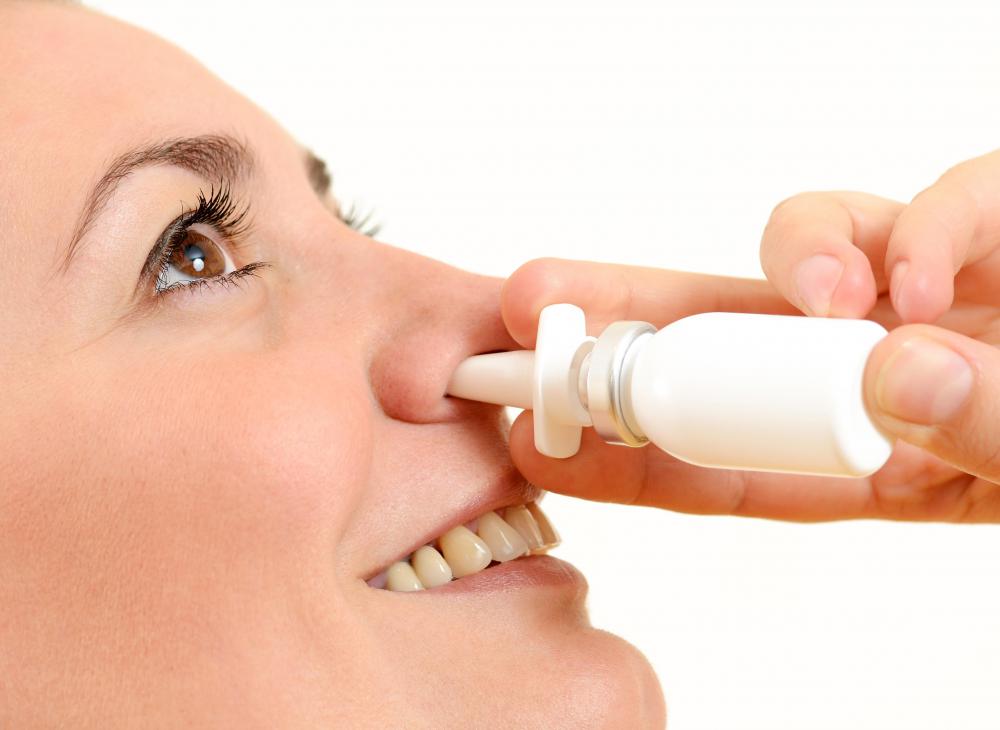At WiseGEEK, we're committed to delivering accurate, trustworthy information. Our expert-authored content is rigorously fact-checked and sourced from credible authorities. Discover how we uphold the highest standards in providing you with reliable knowledge.
What is the Difference Between a CPAP and a BiPAP?
Sleep apnea is a relatively common disorder among adults older than 30, and many experts believe that a large number of people suffer from undiagnosed sleep apnea. A common symptom is excessive snoring, but it also can produce far more severe symptoms, including memory loss, disorientation, moodiness, a general overall feeling of malaise and, in extreme cases, even death. Those with severe sleep apnea can be treated with a Continuous Positive Airway Pressure (CPAP) machine or a Bi-Level Positive Airway Pressure (BiPAP) machine, depending on their doctors' recommendation. The choice between a CPAP and a BiPAP is made based on the type of sleep apnea and its severity.
The major difference between the two machines is the pressure used to increase air flow. With a CPAP machine, the flow of air is constant. A BiPAP machine, by contrast, provides a stronger pressure during inhalation and a lighter pressure during exhalation. Because of these differences, a CPAP and a BiPAP are used to treat slightly different disorders. The CPAP is more suited to obstructive apnea, and the BiPAP often is used to treat central sleep apnea.

A diagnosis of sleep apnea often occurs when a patient undergoes a sleep study to determine overall sleep patterns. Often, a series of symptoms that seem to point to another condition prove to be caused by sleep apnea. Sleep apnea actually causes sufferers to stop breathing for periods of time during sleep, and the condition is often discovered by a spouse or partner who witnesses the events during the night. Once the apnea is diagnosed, the patient and doctor can decide how to treat the condition.

A CPAP and a BiPAP each include a machine that produces a flow of air as well as a mask worn over the patient's face during the night. A lightweight elastic band holds the mask in place. With obstructive sleep apnea, the airways tend to close during breathing, making the CPAP more suitable, because it produces a continuous flow of air to counteract the obstruction. Central sleep apnea, in which the breathing problems can be traced to the central respiratory system, is often more comfortably and more effectively treated with a BiPAP.

Another way of choosing between a CPAP and a BiPAP is comfort. If a patient has tried a CPAP and finds the continuous pressure to be uncomfortable, a BiPAP might be a better choice. Some patients find that the constant air pressure makes exhalation difficult or uncomfortable. The lessening in air flow during exhalation in a BiPAP machine can eliminate this discomfort.
AS FEATURED ON:
AS FEATURED ON:



















Discussion Comments
I’ve had my bipap about a week, and I'm getting used to the mask and air leaks, but I’m getting a different mask. One night I don’t know what was wrong with me, but I just couldn’t push the air back out, and I started getting anxiety. So I just went back to the oxygen. I hope the new mask helps. I’m still tired, but I know I still need more time with it.
What is cumbersome about CPAP? What I have consists of a unit about 6-8 inches wide and about 14 inches long.. It fits neatly on top of my nightstand. My new BiPAP may be a tad larger.
I'm getting ready for a sleep study. I have congestive heart failure, and probably sleep apnea. If so, how long would I have to use CPAP, BiPAP for?
To Anon 75547: I have sleep apnea. and have good results with a ResMed CPAP machine. However, I also have ALS and have learned that the Bi-PAP may be a better choice for me. I use the VA for my therapy, and will see them tomorrow. Please respond to me so I can relay the results of my visit.
I have been treated for sleep apnea for approximately eight years. I suffered severely with snoring, not knowing what my diagnosis really was.
Finally, after being admitted to a hospital,I learned what I had to do. I use the bi-pap machine with a heater. Once I got used to my machine, I sleep better and rest better. No matter what, during the night, my machine/s will beep, shut off for a few moments, beep then come back on. I cannot seem to pin this down. Any help is appreciated. The provider doesn't know either. Barry B.-70 yoga.
I have been diagnosed with moderate to severe sleep apnea and have tried the CPAP but could not handle it because of its' cumbersome 'furniture'. Now I am am trying the oral appliance and things aren't going well with it.
Fortunately, I am covered by Medicare and Blue Shield and hopefully, my very competent Doctor, Dr. Bradley Eli practicing in Encinitas, CA will consider the BiPap.
Post your comments